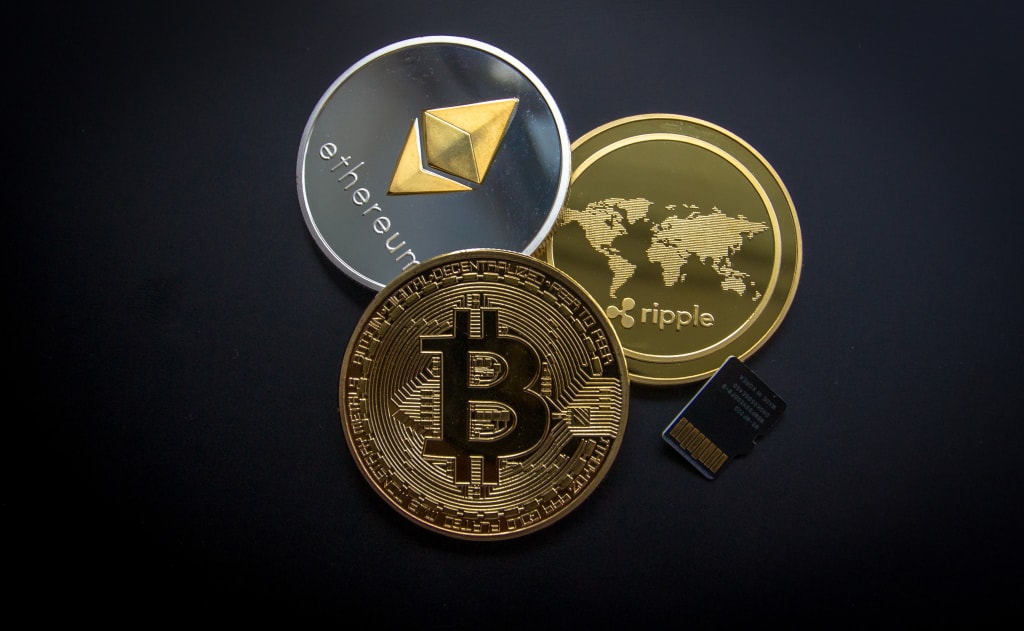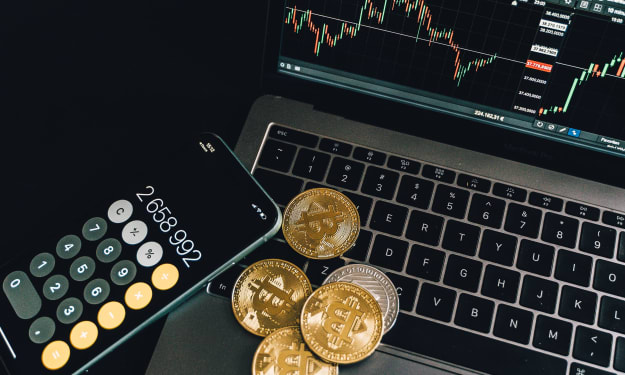The Journey of Cryptocurrency in India: From Early Adoption to Regulatory Challenges and Future Prospects
Exploring the Evolution of Cryptocurrency in India

Cryptocurrency has been a controversial topic in India since it first emerged in 2009 with the creation of Bitcoin. The decentralized digital currency allows for secure and anonymous transactions without the need for intermediaries like banks. While it has its advantages, it has also been a source of concern for governments around the world due to its potential for misuse in illegal activities and lack of regulatory oversight. In this article, we'll explore the journey of cryptocurrency in India and how it has evolved over the years.
The Early Years
The first-ever Bitcoin transaction in India took place in 2011 when a user from Pune purchased a pizza for 10,000 BTC. However, it was only in 2013 that the digital currency gained widespread attention in the country, when it reached an all-time high of $1,200. This led to a surge in interest, with several Bitcoin exchanges and trading platforms being set up in the country. At the time, the regulatory framework was virtually non-existent, and the Reserve Bank of India (RBI) had not yet taken a stance on the legality of cryptocurrencies.
In 2017, the RBI issued a warning on cryptocurrencies, stating that they were not backed by any government or authority, and therefore, their usage could pose financial, operational, legal, customer protection, and security-related risks. Despite this warning, the cryptocurrency market in India continued to grow, with several startups and established players entering the space. The largest Bitcoin exchange in India at the time, Zebpay, had over a million users and processed more than $20 million worth of transactions every month.
The RBI's Circular
In April 2018, the RBI issued a circular prohibiting banks from dealing with cryptocurrency exchanges and other related businesses. The circular cited concerns about money laundering, terrorist financing, and other illegal activities, and instructed banks to stop providing services to such entities within three months. This move dealt a severe blow to the cryptocurrency market in India, as most exchanges relied on banks for deposits and withdrawals.
The circular was met with widespread criticism from the crypto community, with many arguing that it was an overreaction and an infringement on their right to conduct business. Several exchanges challenged the circular in court, but the case dragged on for almost two years, during which time most exchanges either shut down or moved their operations overseas.
The Supreme Court Ruling
In March 2020, the Supreme Court of India finally delivered its verdict on the case, overturning the RBI's circular and declaring it unconstitutional. The court ruled that the RBI did not have the power to impose such a blanket ban on the cryptocurrency industry without conducting proper research and consulting with stakeholders. The verdict was seen as a major win for the crypto community in India, as it opened up the market for more participation and growth.
The Aftermath
Following the Supreme Court's ruling, the cryptocurrency market in India witnessed a surge in activity, with several new exchanges and trading platforms being set up. Bitcoin and other cryptocurrencies saw a spike in demand, and the market cap of the entire industry reached an all-time high in late 2020. The pandemic-induced lockdown also contributed to the growth of the industry, as more people turned to online trading and investing.
However, the growth of the industry has also led to several regulatory concerns, with the government mulling a ban on private cryptocurrencies. In January 2021, the government introduced the Cryptocurrency and Regulation of Official Digital Currency Bill, which proposed to ban all private cryptocurrencies in the country and create a framework for the launch of an official digital currency by the RBI. The bill also proposed heavy fines and prison terms for anyone found using or dealing in cryptocurrencies.
The proposed ban has been met with mixed reactions, with some arguing that it is necessary to prevent the misuse of cryptocurrencies, while others claim that it is an infringement on personal freedoms and will hinder the growth of the industry. The crypto community in India has been vocal in their opposition to the ban, with several online campaigns and petitions being launched to oppose the bill.
The future of cryptocurrency in India remains uncertain, with the government yet to take a final decision on the proposed ban. However, one thing is clear - the technology has the potential to revolutionize the way we transact and conduct business in India. With its fast and secure transactions, low fees, and lack of intermediaries, cryptocurrencies can help drive financial inclusion and innovation in the country.
The crypto industry in India is still in its early stages, and there is a lot of room for growth and development. Several startups and established players are working on innovative solutions to address the challenges facing the industry, such as lack of liquidity, volatility, and security concerns. Some of these solutions include the use of blockchain technology for secure and transparent transactions, the integration of cryptocurrencies into traditional financial systems, and the development of decentralized finance (DeFi) platforms for lending, borrowing, and other financial services.
The journey of cryptocurrency in India has been a tumultuous one, with several ups and downs along the way. The industry has faced regulatory hurdles and market volatility, but it has also shown tremendous potential for growth and innovation. The recent Supreme Court ruling has given a new lease of life to the industry, and the proposed ban has only spurred more interest and activity in the space. The future of cryptocurrency in India remains uncertain, but one thing is clear - the technology is here to stay, and it will play a significant role in the country's digital transformation in the years to come.





Comments
There are no comments for this story
Be the first to respond and start the conversation.